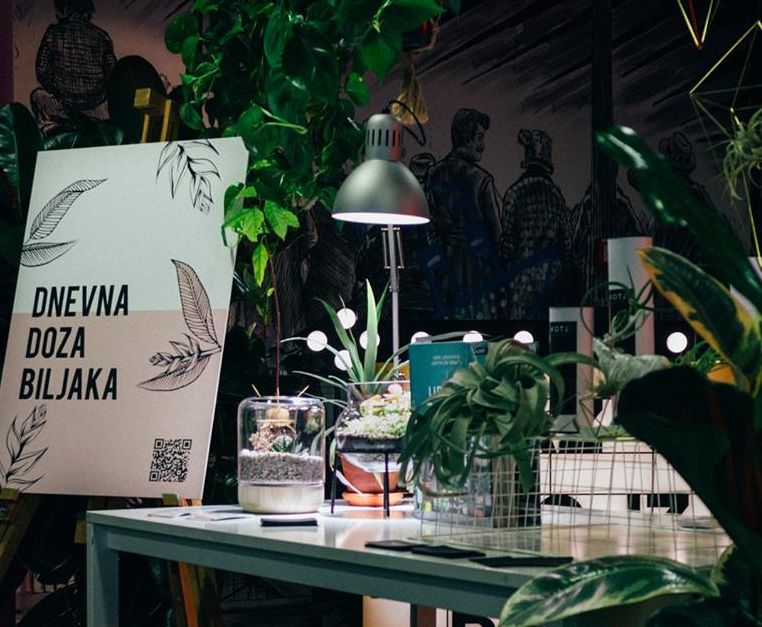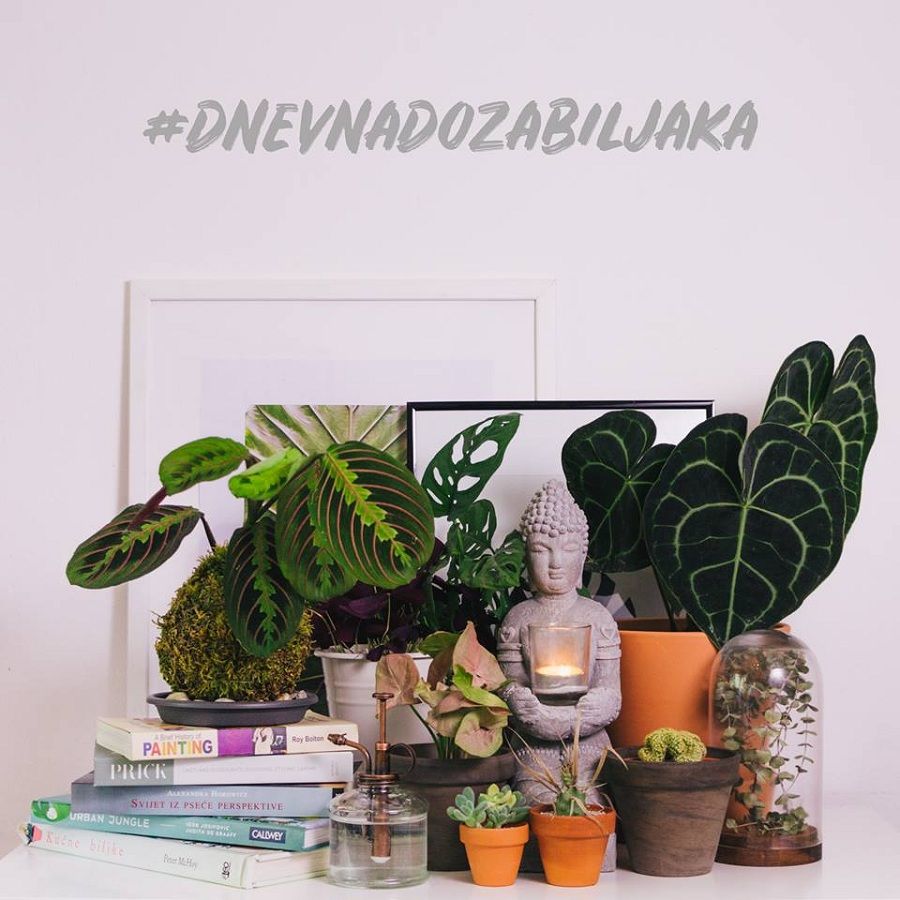Snapchat Integrates Croatia's Photomath for Solving Mathematical Problems
As Mia Biberovic/Netokracija writes on the 5th of April, 2019, Snapchat's camera is set to become even smarter, as was stated yesterday at the Snap Partner Summit. Namely, an expanded reality platform was presented for developers under the name of Scan, and among the first partners is Croatia's very own Photomath, which will now enable Snapchat users to easily solve mathematical tasks.
For a while now it has been able to be seen that Snap has been heading in the direction of expanded reality more strongly. This was yet more visible when the wildly popular app introduced real-world scanning, recognition abilities, and the possibility to purchase through Amazon, directly via the app. In addition, Snapchat's camera enabled song recognition through Shazam, and new, more interesting camera applications were presented yesterday, this means that Giphy will be able to recognise real-world objects and include a convenient GIF to match, and Photomath will recognise maths problems and offer users a solution.
Croatia's Photomath application has already risen to extreme levels of popularity. Back in November, Netokracija exclusively wrote about the Croatian app's impressive 100 million downloads. In addition, founder Damir Sabol then announced that they received a six million dollar investment. This partnership with Snapchat, which, when announced at Snap's event for partners, received a special applause, and will surely help make these already impressive figures even higher.
As Damir Sabol, the founder and CEO of Photomath told Netokracija, this collaboration is well positioned for targeted users because Snapchat and Photomath have very customised user bases and naturally coincide.
Sabol: The basic features of Photomath will be available through Scan.
Among other things, Sabol revealed that only one part of the application's functionality will be integrated into Snapchat's Scan:
Only the basic features will be available on Snapchat - specifically, getting solutions for whatever is being scanned. For all of the other features, and mostly for step-by-step explanation, Photomath is there. Thus, Photomath's founder believes that such a cooperation will open the way for new users because Photomath isn't intended for offering only the ultimate solutions to mathematical tasks, but a higher educational value through the solving process, and this can only be achieved through the Photomath application itself.
When it comes to the number of users, Snapchat is still lagging behind Instagram, but CEO Evan Spiegel revealed, as TechCrunch writes, in the US, Snapchat reaches nearly 75 percent of all people between 13 and 34 years of age.
We reach 90 percent of people between the ages of 13 and 24, in essence, we reach more people of that age than Facebook and Instagram in the United States, the UK, France, Canada and Australia does.
This also proves Sabol's assertion that the target group matches them. However, on the sidelines, what Snapchat's greatest asset is the will of the user to explore the world of expanded reality, which is something other social network platforms have not yet achieved. In addition to being an inevitable source of customer entertainment, this is also a great opportunity for partners, and examples of collaboration were presented yesterday, such as those with Netflix, or with the well known GoFundMe platform, to share news of various charity campaigns.
Scan will allow us to scan everything around us in order to interact with objects and living creatures, whether it is banknotes, monuments, or our pets in expanded reality. Otherwise, Scan was created based on the startup of Scan.me.
Make sure to follow our dedicated business and Made in Croatia pages for much more.
Click here for the original article by Mia Biberovic for Netokracija
1.9 Million Croats Use Facebook, 1.1 Million Instagram
A study conducted by the Arbone digital marketing agency about the profile of average users of Facebook and Instagram in Croatia in 2019 has confirmed that these social networks are the most popular ones among Croats. About 1.9 million Croats use Facebook, which has become one of the leading online advertising channels. Not far behind is Instagram, with 1.1 million users, reports Večernji List on January 17, 2019.
Before May 2017, Instagram was one of the social networks that did not get too much attention from the Croatian users. Data show that in January 2017 there were about 390,000 Instagram users in Croatia, while four months later, in May 2017, the number of users of the network grew rapidly to 730,000, according to Arbone's report published on Thursday.
Facebook's targeting options have shown that the total number of active Facebook users in Croatia is approximately 1.9 million and that the share between women and men is about 50:50, with 940,000 female users (49 per cent) and 960,000 male users (51 per cent).
The total number of active Instagram users in Croatia is approximately 1.1 million, with 590,000 female users (54 per cent) who are active on this social network and with 510,000 (46 per cent) male users.
The largest group of active Facebook belongs to the ages between 25 and 34, while the most active users on Instagram are those belonging to the 18-24 age group.
Arbon says that, in 2016, the most active groups of Facebook users were those between the ages of 13 and 24 years, which means that the younger generation has moved to Instagram in the meantime.
The largest number of active Facebook and Instagram users live in Zagreb (680,000 / 410,000), followed by Split-Dalmatia County (180,000 / 120,000), Primorje-Gorski Kotar County (130,000 / 68,000) and Osijek-Baranja County (130,000 / 67,000 users).
As far as individual towns are concerned, with the exception of Zagreb, the most significant number of Facebook and Instagram users come from Split (99,000 / 66,000), Rijeka (82,000 / 44,000) and Osijek (61,000 / 33,000). These results are expected, given that these are the four largest towns in the country.
More news on the social media in Croatia can be found in the Lifestyle section.
Translated from Večernji List.
Social Network Project Brings Urban Jungle Trend to Croatia
“Dnevna Doza Biljaka” (Daily Dose of Plants) is a new Instagram and Facebook project that is steadily growing and has the goal of starting the urban jungle trend, which is very popular abroad. This is the first such project in Croatia, and it has been developed by Tomislav Štrkalj and Leon Božić, reports 24sata.hr on November 25, 2018.
“This is something we have been talking about for a while. We noticed that Croatia does not seem able to accept the urban jungle trend which is very popular abroad. We wanted to start it in Croatia as well, but we delayed it for a while because we were not sure whether it would make sense to our people and what would be the reactions. However, earlier this year we decided to step into the digital rainforest,” the founders explained.

The reactions were great, and a community of greenery lovers developed around their initiative. “People send us photos of their new plants, seek advice for those which they have, ask us to assist them in their projects. People have finally dared to incorporate plants into their living spaces, and now they ask us for advice, as well as where they can buy a certain plant or a piece of equipment,” Tomislav said.
“After each workshop, we get asked when another one will take place and whether we can visit other towns besides Zagreb. The community tells a really beautiful story about the love which comes out from something as simple as a plant in front of a window,” Leon said, adding that their initiative is a Croatian product. “The name of the project is in Croatian, all texts are written in Croatian and we promote local brands and crafts we trust. We knew that we might lose some of the followers in other countries, but we believe it is worthwhile investing in the community and showing that there is room for good ideas in Croatia as well,” Leon explained.

They have attended numerous fairs, met some of their idols and created wonderful friendships, including with the head of the Zagreb Botanical Gardens. The number of followers is growing daily. They brought together experienced gardeners, but also beginners who are just discovering the joy of living in a green oasis.
Their most important advice is to find a good site for your plant. “All plants like the sunlight, but it has to be mild sunlight that will not burn them. Western windows are an enemy to the plants; they will prosper if you put them in front of windows looking in other directions. When you learn the basics, you can really enjoy every new leaf and flower.”
For more on social media in Croatia, click here.
Translated from 24sata.hr (reported by Antonela Žgela).
Tomislav Horvatinčić: Media and Social Networks Are Demonising Me
The Zagreb entrepreneur faces the music once again.
Social Media Helps with Home Delivery of Fresh Neretva Tangerines
There is a growing consumer interest in the direct delivery of fruit, which, besides its producers, is also being bought and sold through the Finoteka portal.
City of Sinj Increasingly Popular on Social Media
Sinj is currently the third most popular European destination on Pinterest in the category of sustainable tourism
Welcome to the EU Member State Where Satire is Banned by Facebook
Popular Croatian satire pages Pretjerivač and Di su pare? seem to have been removed from Facebook...
Local Business’ Social Media Hacked, Leaving Negative Reviews
Corto Maltese Restaurant is the second business (that we know of) who have had their Facebook page attacked by bots who leave dozens of negative reviews and destroy an online presence in mere minutes.

